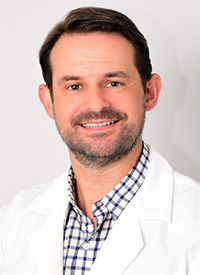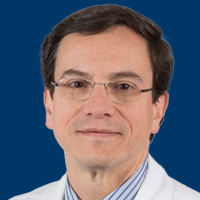Article
Press Release
Cancer Experts at Jersey Shore University Medical Center Implanting First Targeted Liver Tumor Treatment Pumps in Patients
Jersey Shore University Medical Center is among the first hospitals in New Jersey to provide the HAI pump, which is offered at few hospitals in the country, enabling the N.J. community to stay close to home for care.
Gregory J. Tiesi, M.D., FACS, FSSO

A team of surgical experts led by Gregory J. Tiesi, M.D., FACS, FSSO, began implanting hepatic artery infusion pumps in patients at Hackensack Meridian Jersey Shore University Medical Center in June. They are among the first in New Jersey to provide the pump for patients. The Intera 3000 Pump enables leading-edge Hepatic Artery Infusion (HAI) therapy for the treatment of cancers within the liver, including; intrahepatic cholangiocarcinoma (IHCC, bile duct cancer) and colorectal cancer liver metastases, without the negative side effects seen with systemic chemotherapy.
Colorectal cancer is the third most common cancer diagnosed in both men and women each year in the U.S., excluding skin cancer. The liver is the most frequent site of metastatic disease, with at least 25 percent of patients developing colorectal liver metastases during the course of their illness. IHCC is the second most common primary cancer of the liver.
“This state-of-the-art technology provides a highly pinpointed and concentrated treatment option for patients with two conditions; advanced primary liver cancers like IHCC, which have a poor prognosis and are hard to treat and colorectal cancer liver metastases,” said Dr. Tiesi, medical director of Hepatobiliary Surgery at Jersey Shore University Medical Center. “HAI therapy is associated with a higher likelihood of tumor shrinkage, a better chance of tumor removal, reduced risk of the cancer coming back and improved survival. What is equally important is that since the treatment is directed specifically to the liver, patients do not experience the negative side effects or toxicities that accompany chemotherapy like when it is delivered through a vein to the whole body.”
The palm-sized pump is surgically implanted in the abdomen and designed to deliver a continuous flow of chemotherapy directly to the hepatic artery that feeds tumors in the liver. Individuals receiving HAI therapy continue their normal daily activities outside of a hospital with minimal disruption to their lives.
“With Dr. Tiesi’s leadership, I’m proud that we are among the first in New Jersey to provide the HAI pump, enabling our community to stay close to home to receive this type of advanced surgical care and cancer treatment,” said Vito Buccellato, MPA, LNHA, president and chief hospital executive, Jersey Shore University Medical Center.
“This is a great example of Jersey Shore’s leadership in providing leading-edge cancer treatment in Monmouth and Ocean counties,” said Kenneth N. Sable, M.D., MBA, FACEP, regional president, Southern Market, Hackensack Meridian Health. “And another great milestone of innovative cancer care the academic medical center is offering our community.”
Dr. Tiesi is board certified in Complex General Surgical Oncology and General Surgery and has specialized in surgical oncology for nearly a decade. He focuses on treating pancreas, liver, upper gastrointestinal, thyroid and other related cancers. To make an appointment with Dr. Tiesi at his office in HOPE Tower on Jersey Shore University Medical Center’s campus, call 732-776-4470. For more information about the academic medical center, visit www.hackensackmeridianhealth.org/en/Locations/jersey-shore-university-medical-center.









